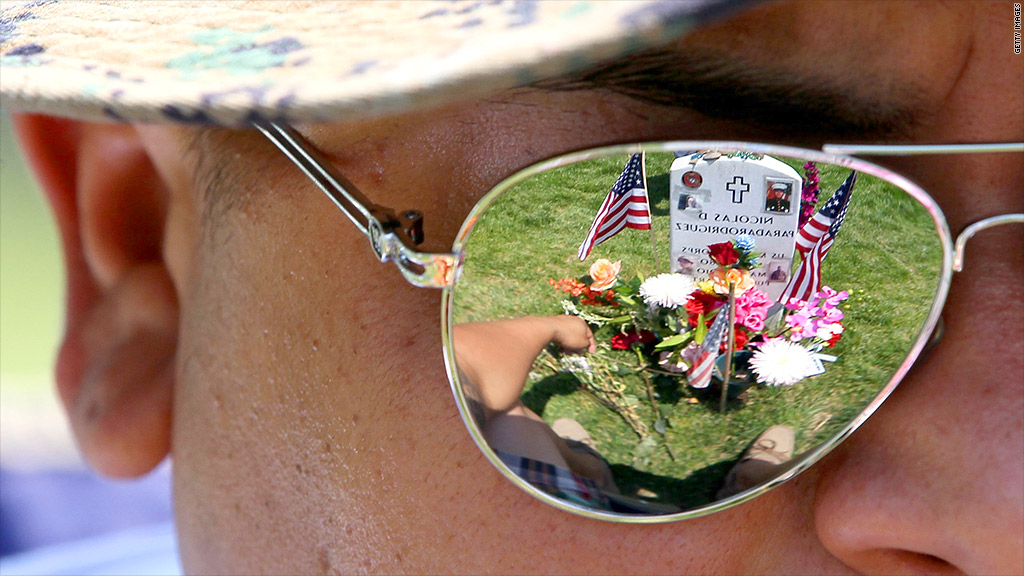
Much has been made about the lack of jobs for veterans, and in fact the unemployment rate for veterans of the Iraq and Afghanistan wars stands at 10%, compared to 6.8% of the civilian population. But the insufficient attention given to veterans' health -- especially mental health -- is actually the greatest risk to returning service members.
There are approximately 2.6 million American service members who fought in Iraq or Afghanistan, and there have been 1.5 million new veterans since 2001. As a retired Marine, I have witnessed firsthand the hardships facing our returning men and women, and know the difficulties don't end when their tours are over.
An estimated 20% of Afghanistan and Iraq veterans screen positive for PTSD or depression, and the mental health community is, at best, disjointed in dealing with this. Veteran's Affairs spent $6.2 billion -- up slightly from last year -- on inpatient, residential, and outpatient mental health programs, but veterans are still having difficulties being treated.
In fact, the VA recently released data showing that a third of veterans seeking mental health appointments wait longer than 14 days. In cities like Orlando, Houston and Los Angeles' VA hospitals, the wait times are even higher. In Houston, for instance, veterans waited an average of 28 days for an appointment. The initial step to seek treatment can be a hurdle in and of itself, and half of those with PTSD go untreated.
Related: Vet turns military training into $50 million fitness company
Many Americans are familiar with the concussion-related traumatic brain injuries (TBIs) suffered by NFL athletes. In fact, just last month the NFL agreed to pay $765 million to settle a lawsuit brought by 4,500 retired athletes claiming that the NFL worked to conceal the long-term impacts of concussions from players. What's been less publicized is the number of veterans who are also diagnosed with traumatic brain injuries.
There have been nearly 250,000 veterans with TBI since 9/11 according to the Congressional Research Service, and the number of diagnoses continues to increase. On top of that, the Defense Medical Surveillance System found that nearly 6,500 veterans suffered Severe or Penetrating TBI, which can impair cognitive function, motor function and sensation -- making it hard for veterans to perform the most basic of daily functions.
TBI often leads to more medical complications as well: The Centers for Disease Control says 43% of individuals hospitalized after a severe TBI will have a related disability within a year of the injury.
Related: Starbucks to hire 10,000 vets and military spouses
Physical and mental health issues represent a very real barrier for our nation's service men and women. Returning veterans already cope with the daunting task of re-assimilating into their civilian lives, with health and financial woes further complicating this transition. I have witnessed firsthand the physical, mental, and financial stresses facing veterans across the country.
Unfortunately, in many instances the pressure can prove to be too much, and veterans account for 20% of suicides, despite making up only 10% of the U.S. population. Suicide rates among the veteran population are the highest they have been since the beginning of the Iraq and Afghanistan wars.
As a first step in supporting these veterans, those of us in civilian life can work to close the gap between providers of mental health services and the veterans who desperately need their help. An April GAO report surveyed civilian mental health care providers, finding that only 39% were accepting new patients with veteran's TRICARE health insurance coverage. For many veterans, this is the only way they can afford mental health assistance, and yet in many regions of the country it can be nearly impossible to find someone who accepts their insurance. It is a significant -- and unnecessary -- barrier to veterans getting the help they need. On this Veteran's Day, we should start taking steps to bridge that barrier.
Steve Brozak retired as a Lieutenant Colonel from the United States Marine Corps in 2004. He served on active duty and as a reservist for 22 years. He is currently a health care research analyst and health care investment banker.


